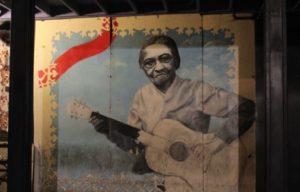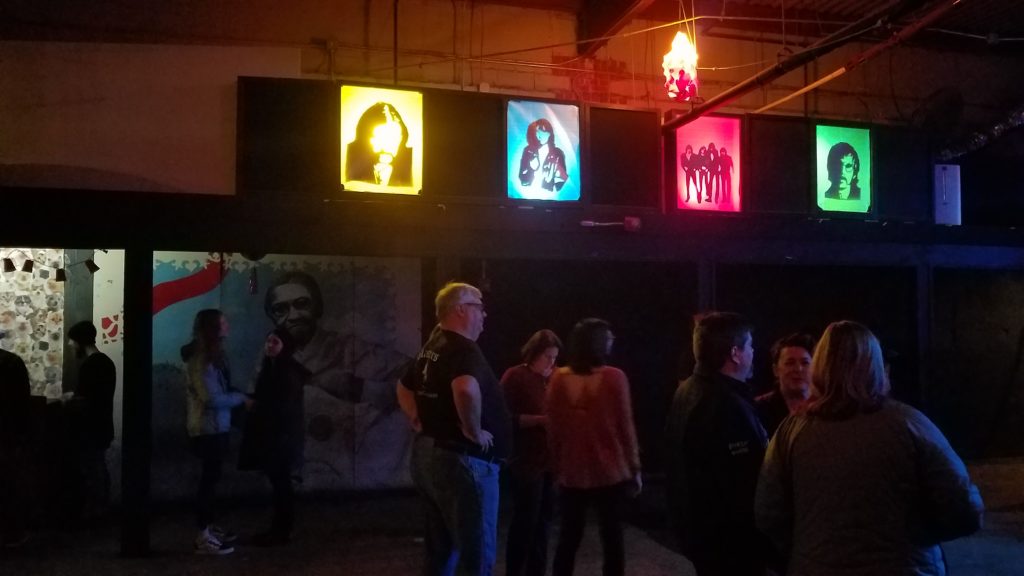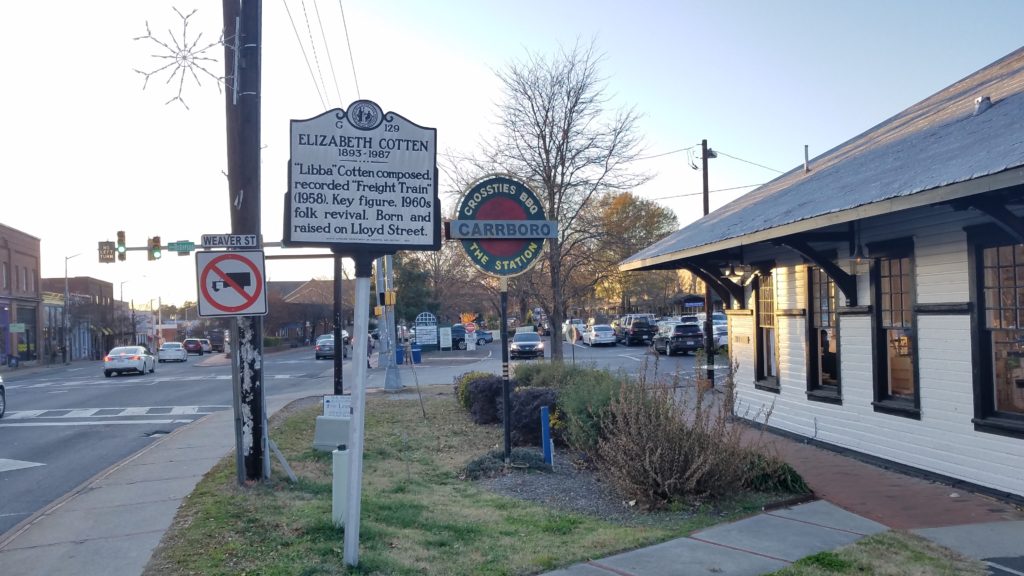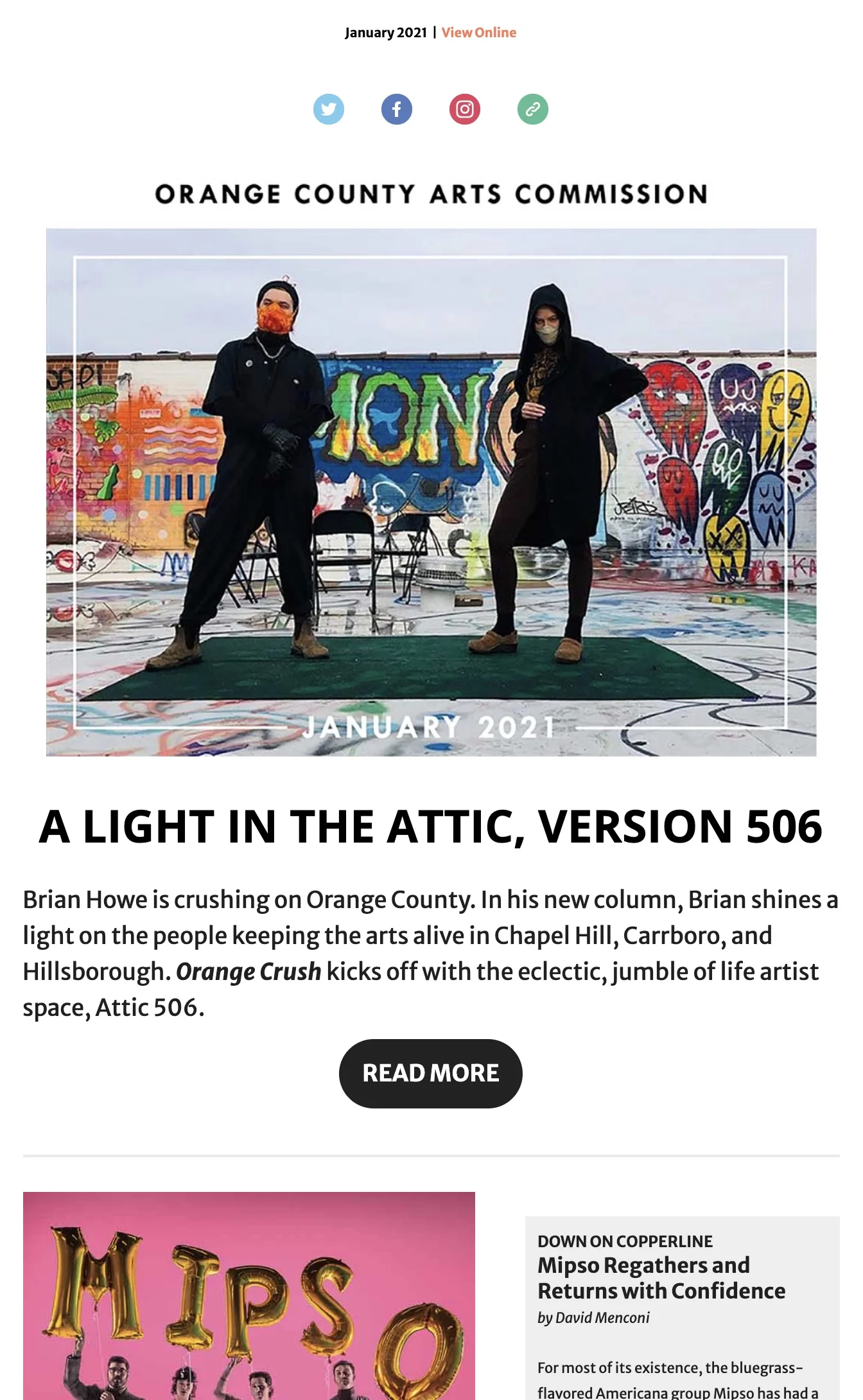Featured photo by Daniel Coston
By David Menconi

It’s been well over a century since the late great Elizabeth “Libba” Cotten was born in what is now Carrboro, but you can still find traces of the Piedmont blues legend’s wonder years in her old hometown. A bike trail bears her name, and there’s a historical marker by the old train station on Carrboro’s East Main Street in honor of her classic composition “Freight Train.”
But you’ll find the most unique tribute in town on the wall of Cat’s Cradle nightclub, in a strip center at the south end of Lloyd Street (where Cotten lived as a child). On the west wall of the club’s interior is a mural of Cotten that dates back to 1993, when the Cradle’s Carrboro location of the Cradle opened. Painted on three pieces of plywood, it’s been moved around to a few different walls inside the Cradle over the years. Nowadays it’s right under an iconic rock-star silk-screen portrait of Lemmy Kilmister from the band Motorhead.

Commissioned by longtime Cradle owner Frank Heath, the Cotten mural was painted by Laird Dixon, a local artist and musician best-known for his time in the Chapel Hill alternative-rock band Zen Frisbee. It was Dixon’s way of connecting with Cotten’s local history in some very personal ways. The train trestle where Cotten is said to have written “Freight Train” was a popular spot in Dixon’s social circle.
“Yeah, me and my derelict friends would hang out there and drink,” Dixon says with a laugh. “How one of us never fell off it is beyond me.” When Cotten was born in 1893, the area west of Chapel Hill was still known as West End, two decades before it was dubbed Carrboro. Cotten was left-handed and taught herself to play a right-handed guitar as a child, resulting in a truly idiosyncratic picking style. She wrote “Freight Train,” a Piedmont blues standard that has been covered by everybody from The Beatles on down, before she was a teenager.
Family obligations meant that music was back-burnered as a family pastime for decades, and life took Cotten away from North Carolina. In the 1950s, Cotten was working as a domestic in the Washington, D.C., home of the Seegers, a well-known family of musicians and folklorists. When they became aware of Cotten’s musical abilities, the Seegers encouraged her to pursue a career in music. Cotten emerged as a sensation during the folk revival and became a beloved elder on the festival circuit, winning a Grammy Award in her 90s before dying in 1987 at the age of 93. Dixon modeled his Cotten mural on a photograph from one of her album covers. Dixon’s recollection is that it was done in a few days over the course of about a week leading up to the Carrboro Cradle’s grand opening in November 1993.
“The paint was still wet an hour before the doors opened,” he says. There was enough of a time crunch that Dixon didn’t quite finish the portrait. Cotten’s face is recognizable, but he never got around to some of the details on her guitar. While there was some talk for a number of years about Dixon finishing it up, that’s never happened. By now, it’s so familiar in its semi-complete state that it’s been allowed to stand as is.
“I dropped the ball on not finishing it, which I’m not proud of,” Dixon admits. “But people sometimes tell me things like, ‘It’s neat that your artistic statement of non-completion is still there.’ I just play along and pretend that’s insightful commentary about what I meant to do.” Dixon’s band Zen Frisbee will play Carrboro’s Cat’s Cradle on Jan. 3 as part of the club’s 50-year-anniversary celebration. Also on the bill that night are Superchunk, Bandway, Lud, Ben Davis & The Jetts, Michael Rank and Torch Marauder. For details, see catscradle.com.

